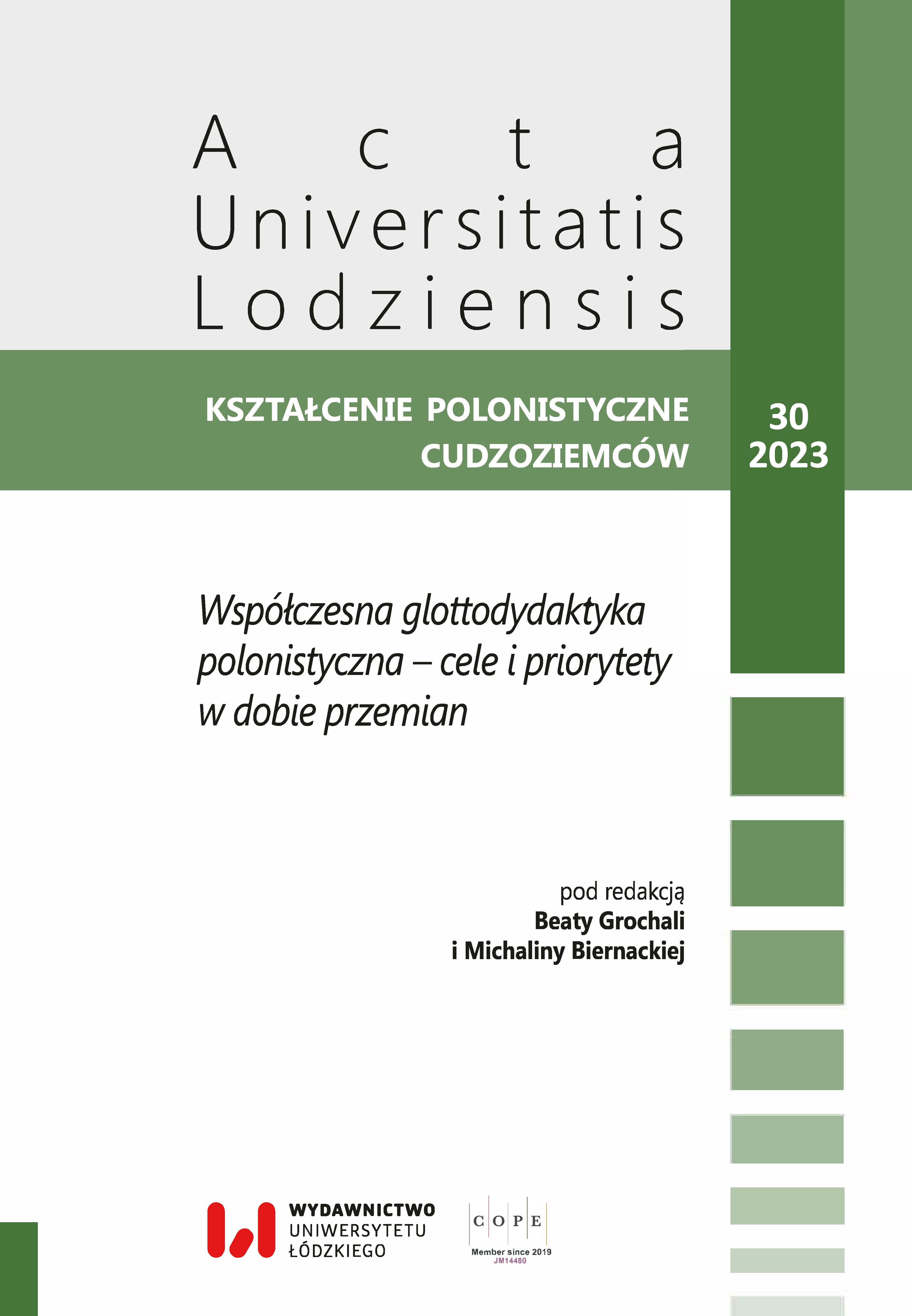"Bóg, honor, ojczyzna"? O stosunku Polaków do państwa i narodu w polskich i słoweńskich badaniach ankietowych
"God, honour, fatherland"? About the attitude of Poles to the country and nation in Polish and Slovenian surveys
Author(s): Maria Wacławek, Maria WtorkowskaSubject(s): Foreign languages learning, Cultural Anthropology / Ethnology, Methodology and research technology, Nationalism Studies
Published by: Wydawnictwo Uniwersytetu Łódzkiego
Keywords: linguistic image of the world; stereotype; Pole; country; nation; cultureme
Summary/Abstract: The motto of the Polish Army referred to in the title belongs to the key concepts of Polish culture; it is activated in the minds of Poles and non-Poles. The concept of state and nation is inseparably connected with the issue of national identity, as well as what the fatherland is and how it is perceived. As a theoretical basis for research, we consider the assumptions adopted in Polish ethnolinguistics regarding linguistic and cultural stereotypes, as well as the culturemes that correlate with them. The aim of the article is to reconstruct a fragment of the stereotypical concept of Poles – what, according to Polish and Slovenian respondents, best characterizes a Pole in their attitude to the state and nation. Based on the collected survey responses, the following thematic categories were distinguished: 1) positive evaluation, 2) neutral and ambivalent evaluation, and 3) negative evaluation. The survey basically shows a plus-valued image of a Pole as a patriot – particularly clearly outlined in the heterostereotypical (Slovenian) approach. The opposite model was also reconstructed – more strongly emphasized in the auto-stereotypical approach (reconstructed from Polish statements). In the final part of the article, the obtained results were briefly interpreted in the context of culturemes – related to Polish national symbols (fatherland) and ideas (patriotism), as well as in the context of Polish language education for foreigners. It is useful to study key words important for a given culture (in our case, Polish) from the perspective of one’s own and that of the foreign learner.
Journal: Acta Universitatis Lodziensis. Kształcenie Polonistyczne Cudzoziemców
- Issue Year: 2023
- Issue No: 30
- Page Range: 379-400
- Page Count: 22
- Language: Polish

